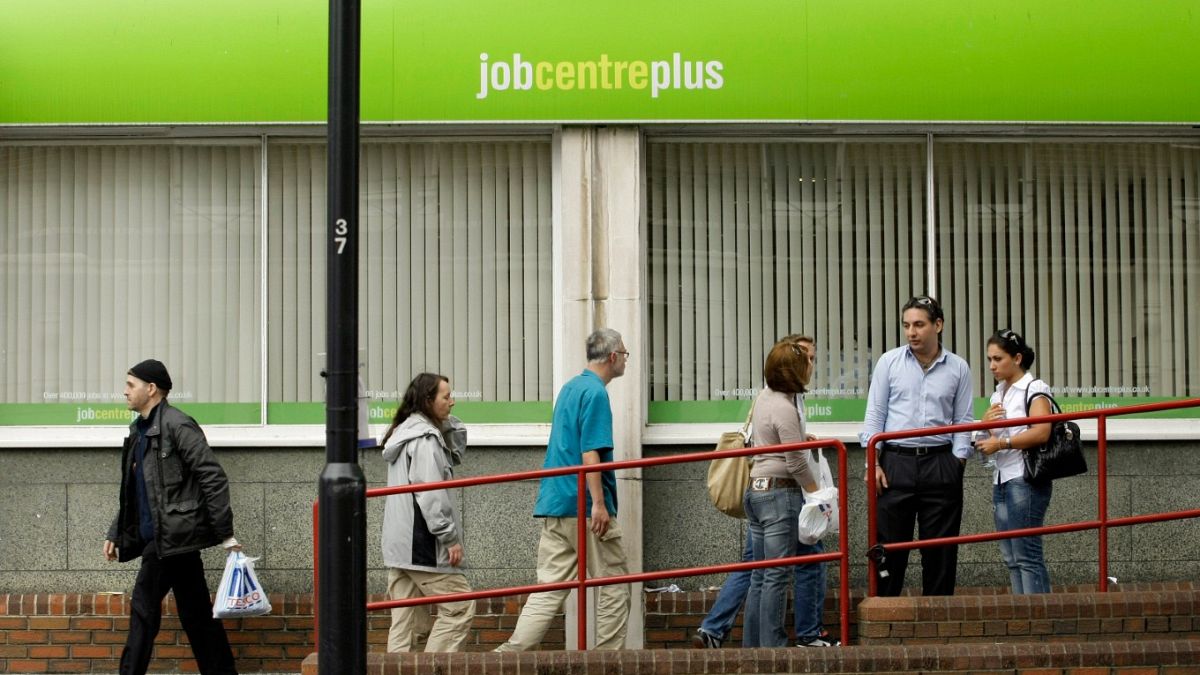UK finance minister Rishi Sunak announced the support on March 20, vowing to reimburse 80% of workers’ wage costs to a cap of £2,500 per month, backdated to March 1, 2020. The scheme sees employees put on temporary leave, called being furloughed.
The UK government's job retention scheme has helped millions of people during the COVID-19 lockdown.
But what about the thousands of people falling through the cracks?
UK finance minister Rishi Sunak announced the support on March 20, vowing to reimburse 80% of workers’ wage costs to a cap of £2,500 per month, backdated to March 1, 2020. The scheme sees employees put on temporary leave, called being furloughed.
But while around eight million people are benefiting from it, tens of thousands are unable to get access to the support.
They include Chetan Rajan, a financial consultant who recently changed jobs. He was told he can't be furloughed by his new employer, despite trying, because he has not been on the payroll long enough.
According to government rules, to qualify an employee must have sent an RTI (Real-Time Information) submission, or payslip, to the tax authorities by March 19.
‘’I just feel this is unfair because I have paid my taxes, I have never ever taken any benefits and I just feel that when the need has arisen for me to claim, I’m unable to and I just find myself really stuck,” Rajan told Euronews.
Seasonal campsite warden Carl Miller - and his wife - are in the same position.
‘’At the moment we have no income, we don’t qualify for universal credit because we do have some savings and that’s what we are living off at the moment. And there’s a good chance we won’t work again until next year,” he said.
It is at employers' discretion whether to take part in the government scheme. Some workers have not had the option of being furloughed and instead have simply been made redundant. It happened to administrator Jim West, who is now back looking for work.
‘’Why should they decide who goes on furlough? I have paid tax for 43 years,’’ he told Euronews.
Lidia Kostova worked for eight years as an accountant with one company and changed to a new job that she had been in for 10 months before being unexpectedly dismissed after the lockdown. She was told by her former employer they would not be furloughing her.
“It was a complete shock. I am left without government support and without employment law support too,’’ she told Euronews.
Meanwhile, a campaign group called New Starter Justice (NSJ) has put forward an open letter to Sunak — signed by at least 63 MPs and thousands of affected members of the public — asking for the furlough scheme rules to be changed to help those who have fallen through the cracks.
Zoe Badder is one of the co-founders of NSJ and told Euronews how they are banding together to make the changes happen.
“There’s about eight of us who collaborated on the open letter,” she said. “We will carry on sending the letters as more signatures get added. So far we have not had any response from Rishi Sunak. We have had a few things tweaked in the legislation that we have asked for but they have only agreed to do that since we lobbied for the changes,” she added.
Euronews asked one employer for his perspective on why companies might be refusing to furlough staff - and why many employees are being made redundant after being furloughed.
Nigel Verdon, CEO of Railsbank, said: “If you have got zero income coming in then you cannot cash flow furlough because almost if you are living minute to minute, day to day, then it is like anybody, if you have experienced living without money, it is a very, very difficult and stressful thing.
“So employers, who have furloughed people instead of making them redundant, then have got to face, actually, because of the cash flow impact of this, we have actually got to make them redundant.”
In the meantime, nothing is certain for the groups of people missing out but could the chancellor provide a glimmer of hope?
Guy Shone, CEO of Explain The Market, said it is possible: “Rishi Sunak says he wants to offer as much support as humanly possible to as many people as possible - and he has been responsive before where gaps in policy have been pointed out although if you are simply not being paid as each day goes by that’s not exactly the rock-solid reassurance that people need.’’
A Treasury spokesperson said: “The Coronavirus Job Retention Scheme has protected more than 8 million jobs through this crisis, and earlier this month we announced it would be extended until October in order to continue supporting workers and employers across the UK.
“We have prioritised helping the greatest number of people as quickly as possible while ensuring our schemes have sufficient fraud risks in place.
“Those that aren’t eligible for the scheme can make use of a number of other measures. These include our strengthened welfare safety net, where we’ve given councils an additional £500 million to support the most vulnerable in our society and introduced mortgage-payment holidays and tax deferrals.”
